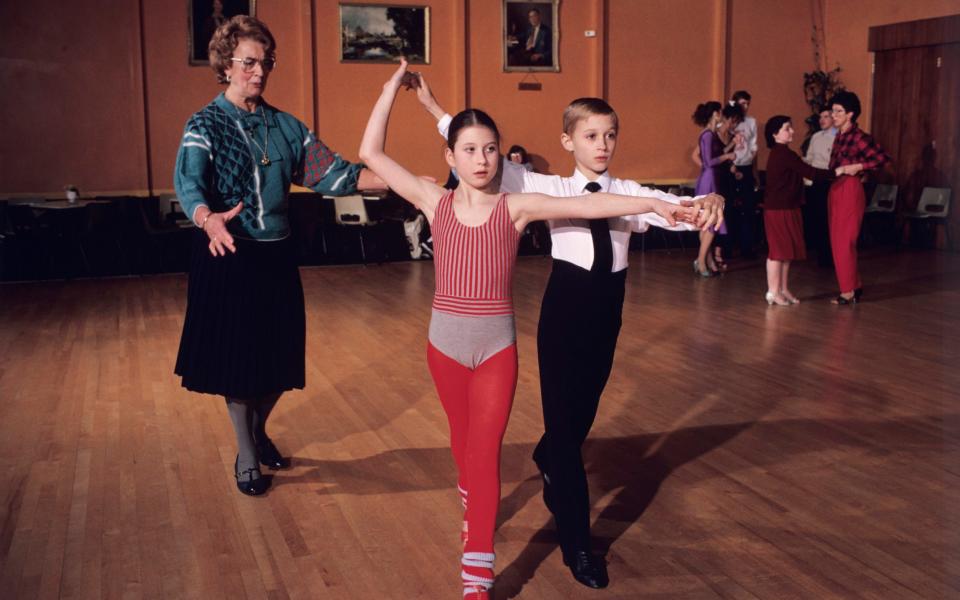Letters: Britain should prepare for a future pandemic – not rake over the past

- Oops!Something went wrong.Please try again later.
- Oops!Something went wrong.Please try again later.
SIR – I can’t help wondering why we are wasting so much time and money on this Covid Inquiry (report, December 7).
As far as I can tell it is simply an expensive way of apportioning blame and making snide personal remarks. Other than providing employment for a number of people, it appears to be achieving little of use – yet it looks likely to drag on.
A more constructive course of action would be to prepare for a future pandemic. Key questions need to be answered about supply routes and the storage of personal protective equipment, along with the reliability of data analysis and the effectiveness of lockdowns.
We need to be looking to the future, not fixating on who dithered over which decision several years ago.
Nicholas Lockhart
Dover, Kent
SIR – I thought the purpose of the Covid Inquiry was to learn lessons in order to be better prepared for the next pandemic.
And the lesson appears to be: don’t have Boris Johnson as prime minister. That’s all right, then. Can this expensive show be wound down now?
Christopher Sharp
Kenilworth, Warwickshire
SIR – I’ve never fully understood why some people dislike Boris Johnson so much.
His evidence at the Covid Inquiry seemed to me to have more humanity and coherence than that of any other witness so far.
No bitterness, no pretence – and it might be added that he was faultlessly polite and occasionally moving.
David Harris
London WC1
SIR – The evidence put forward over the last two days by Boris Johnson has been full of non-credible statements, breathtaking denials and convenient lapses of memory in the face of hard facts. He has demonstrated once more that he should never be allowed to hold public office again.
Kim Potter
Lambourn, Berkshire
SIR – It seems to have been forgotten that Boris Johnson himself came close to death because of the virus.
It was not his fault that the world was overcome by something widely regarded as having emanated from China.
The whole inquiry has become a finger-pointing exercise: “It wasn’t me – it was anyone else, but especially Boris”.
Ronald Agar
Chester-le-Street, Co Durham
SIR – Are any of the clever lawyers grilling Mr Johnson familiar with the concept of hindsight?
The sooner this farce is over the better.
Christopher Mann
Bristol
Jenrick justified
SIR – The resignation of Robert Jenrick comes as no surprise (report, December 6).
What is it with so many of the governing classes that, even now, they feel the European Court of Human Rights should have the final say on anything about our laws that, to its collective mind, pertains? Now we have the grotesque spectacle of the Prime Minister announcing that he is determined to resolve the matter of uncontrolled immigration – whether legal or otherwise – while, at the same time, insisting that the ECHR should remain the ultimate arbiter.
Are we an independent, sovereign state, or aren’t we? What on earth was the point of Brexit if not?
Mr Jenrick’s action was the only honourable course. Would that such principle were evident elsewhere in government.
Philip J Ashe
Leeds, West Yorkshire
SIR – Much as I applaud Suella Braverman and Robert Jenrick for standing by their firmly held beliefs, firmly held beliefs do not govern a country. More and more, the Conservatives are seen as fighting among themselves, just as they did prior to Tony Blair winning in 1997, which left the Tories out in the cold for 13 years.
Perhaps a spell outside power is what needs to happen for them to realise that political pragmatism, rather than political ideals, wins elections. High principles in parliamentary opposition pass no laws and achieve nothing.
Sir Keir Starmer appears to have got the extremists in his party to shut up, for now, and he is reaping the rewards.
Ian Morgan
Solihull
SIR – Is Rishi Sunak’s appointment of two new immigration ministers (one for legal migration, one for illegal) an admission that there are now too many migrants for one minister to deal with?
Sandy Pratt
Storrington, West Sussex
UAE’s worrying allies
SIR – With regard to the suitability of the United Arab Emirates’ royalty owning The Daily Telegraph and The Spectator, the sight of Vladimir Putin being afforded a gushing welcome by the UAE says all we need to know (“Putin greeted with fanfare in UAE despite international arrest warrant”, telegraph.co.uk, December 6). They are totally unsuitable owners.
That the vast majority of MPs – of all stripes – are not up in arms about the situation leaves one very puzzled. And as for our wishy-washy Prime Minister, words fail me. I fear that politicians hope to brush this matter under the carpet.
Sam Bee
Lindfield, West Sussex
Appealing presents
SIR – For Christmas one year, my husband bought me a potato peeler and a balloon whisk (Letters, December 5), which I found mildly disappointing until a friend told me that she had been given a bicycle repair kit – and she didn’t own a bike.
Hannah Betts
Steyning, West Sussex
SIR – The late Gary Rhodes had the perfect recipe for a succulent Christmas turkey (Letters, December 6). Push butter under the skin of the bird’s breast as far as you can and without tearing the skin. Then brush the breast with melted butter and cover with streaky bacon.
You will never eat dry turkey again.
Wendy May
Hereford
Forced to keep living
SIR – Anne F Bloor (Letters, December 7) writes of the terrible pressure a right to die would create to “end it all”.
Against this, one needs to consider the terrible pressure currently put on human beings to go on living when their lives have, for all practical purposes, ended. Forcing someone to endure years of pain, incontinence, mental incapacity and a generally miserable life isn’t an act of human kindness; it is an act of abject cruelty.
I hope things have changed by the time I find myself in such a situation.
Andy Bebbington
Ravenshead, Nottinghamshire
SIR – When a family member was diagnosed with cancer some 40 years ago, she was nursed at home. When she became bed-ridden, we were supplied with a morphine drip, which could be turned up to control pain. At the time it was understood the point would come when death might be hastened by the drug, but the reality was that it took place naturally.
Today, thanks to the reaction to Harold Shipman’s murders, no doctor dares prescribe such pain relief because of the fear of prosecution for homicide. I have seen awful suffering as a result. How typical that we clamour for regulations to correct the previous ones that created the problem.
There are issues with such a right, however. There is no system of regulation that will prevent abuse of a right to die, nor the extension of such a law. How, too, would we address the errors that would inevitably result, when the focus would be on whether the paperwork was completed correctly?
A return to adequate pain relief, prescribed by properly trained doctors, when there is clear evidence of the suffering caused by the condition, must be the answer.
John O’Donnell
West Mersea, Essex
The real Cape Town
SIR – I fear Andrew Pollock (Letters, December 6), with his paen to Cape Town, has strongly rose-tinted glasses.
He cannot be unaware of the daily power outages; the dire water shortages of recent years; civil unrest; tyre-burning on major roads and more – all due to governmental corruption and lack of investment. Moreover, on our annual visits to Constantia, our hosts have warned us that walking alone in certain areas can be unsafe, when it was never a problem years ago.
Yes, Cape Town is worth visiting, but it’s no paradise.
Peter Molyneux
Wrestlingworth, Bedfordshire
The woman who inspired generations to dance

SIR – I watch with admiration the Strictly Come Dancing television contest, having been a pupil, in my youth, of the late Peggy Spencer at the Royston Ballroom in Penge (now the Matico).
Mrs Spencer, always a very modest lady, brought thousands to ballroom and Latin American dancing, and gained awards for her famous formation-dancing teams.
She was also a distinguished choreographer, becoming president of the Imperial Society of Teachers of Dancing, and a judge of many competitions.
My only criticism of Strictly is the distance that many of the dances have come from the classic steps. As my headmaster at Haberdashers’ Aske’s Boys’, and the headmistress at our counterpart girls’ school, rightly said when classes were arranged with Mrs Spencer for fifth and sixth formers, dancing is a worthwhile social grace.
John Pritchard
Ingatestone, Essex
The BBC must up its game to justify the fee
SIR – Apart from the news, my wife and I seldom watch the array of cooking, antiques, travel and chat shows that make up BBC programming (“BBC licence fee will increase from next year”, telegraph.co.uk, December 7). Recently, faced with a football match on BBC One and an antiques programme followed by something about repairing a fish tank on BBC Two, we ended up watching Some Mothers Do ’Ave ’Em and Yes Minister.
The licence fee would be worth it if new programmes of such quality were featured on BBC channels today.
Malcolm Allen
Berkhamsted, Hertfordshire
SIR – It is apparent that the adage, “If it ain’t bust, don’t fix it”, is not one to which Radio 3 adheres.
Earlier this year it introduced – to general acclaim – the Classical Mixtape, played every weekday evening and described as a 30-minute soundscape of uninterrupted music. Now, however, the station has employed voiceover artists to interrupt the music and tell listeners what they are listening to. Why – particularly if costs must be cut?
Tim Reid
Mayfield, East Sussex
SIR – We look after our grandchildren three days a week and would not survive without CBeebies to provide entertainment. In our opinion, that is worth the licence fee on its own.
The freedom from advertising also makes the fee worth paying. Overall, with iPlayer and the website, I think the current fee of £14 a month represents better value than the £273 a month we pay in council tax.
Roger Jackson
Stockport, Cheshire
Many of our readers have raised concerns over the potential sale of Telegraph Media Group to the Abu Dhabi-linked Redbird IMI.
While Ofcom carries out its investigation we are inviting the submission of comments on the process. Email salecomments@telegraph.co.uk to have your say.
Letters to the Editor
We accept letters by email and post. Please include name, address, work and home telephone numbers.
ADDRESS: 111 Buckingham Palace Road, London, SW1W 0DT
EMAIL: dtletters@telegraph.co.uk
FOLLOW: Telegraph Letters on Twitter @LettersDesk
NEWSLETTER: sign up to receive Letters to the Editor here

